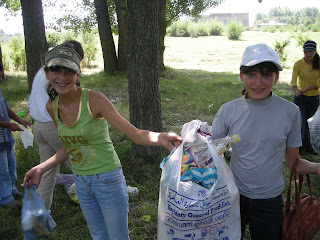
Caro and Coryan at the beach
Plato pointed out that when you carefully examine human utterances you discover the preferred letters and sounds of a language fall on a continuum, a continuum conditioned by the specific and sometimes strange workings of the human mouth. The English sounds so familiar to us developed in different ways from Chinese sounds or Arabic sounds or Nepali sounds did, for instance. We’re all using more or less the same human mouth, but the ways we use this dextrous organ are incredibly diverse. Thus, wherever you’re from, you will find sounds in other languages that simply do not correspond to your own. Some languages have more sounds, more and subtler divisions on the continuum, some have fewer.
I want to introduce perhaps the most used phrase in the Armenian language, an expression of compassion and understanding. In male conversation especially this is the big one, occurring rapidly and frequently, an expression that flows like water or like wine, reassuring, lubricating, expressing mutual suffering, concern, compassion, and brotherhood. The phrase is pronounced “tsav’d tanem”. Literally it means “I’d take your pain”. However, tsav’d tanem often actually means: “Gotcha, now listen to me while I tell you how it is.”
These people love their families. It is impossible to overemphasize how powerful their hospitality is, how much they love to see their family and friends happy and healthy and well fed, how central this condition is to their lives and character. When you’re in their house, they offer everything from food to coffee to fruit to vodka as many times as it takes for you to accept it. And when you offer them something they refuse many times before grudgingly accepting. Good luck walking away from any interaction, especially a first meeting, without gifts for the road and a full belly. This can be frustrating at first for a person from a culture as straightforward as ours. If you want something in America, and it’s offered, you take it. It’s amazing: kids will not accept food or gifts for me, that is unless I really push it. However, in Armenia you’ll never see a grabby or ungrateful guest, and, if you are the guest, you’ll never feel underappreciated.
The other thing is that these people love to talk, love to tell you how to solve all your problems, and love to tell all about their own in eight different ways. This is part of the reason why tsav’d tanem is so well used. When they talk with each other, they have to work to get a word in. I am told that Martuni people are colder than in the rest of the country, that the inhabitants are much like the abundant rocks of our region: staunch and rough. I will agree that on the whole they are not cheery, that they’re a little pissed off there’s no work and all their relatives live in Russia, sending back money and returning for only a month every year. And that the Lake, the Jewel of Armenia, the Sea (tsov) as they call it, is a shadow of its former abundance. But they treasure their children and their joy comes from other people. They have their roots, and their roots are deep.
Host brother Hacob

























